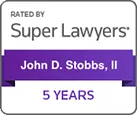Recently, USA v. Jones has landed in judicial limbo. First the conviction and the life sentence that resulted were thrown out in appeal by the Supreme Court on these grounds:
The Supreme Court tossed out GPS data that led to Jones’ conviction, along with Jones’ conviction and life term on Jan. 23 in one of the biggest cases in recent years dealing with technology and a citizens right to avoid unreasonable search and seizure.
“We hold that the government’s installation of a GPS device on a target’s vehicle, and its use of that device to monitor the vehicle’s movements, constitutes a ‘search,’” Justice Antonin Scalia wrote for the five-justice majority.
That decision, the Obama administration claimed, is “wholly inapplicable” when it comes to cell-site data.
USA v. Jones will soon be re-tried and prosecution will now try to use cell phone records to show where the accused was when making phone calls in 2005. The prosecution had 28 days worth of GPS tracking thrown out of their case because they did not receive a warrant for this information.
Cell-site data has been likened to bank records that can be obtained without a search warrant because they are public documents belonging to a “third party.” The verdict is still out on cell-site data. Will the information stand up in court?
Tags: 4th amendment, big brother, cell-site data, gps, search and seizure




